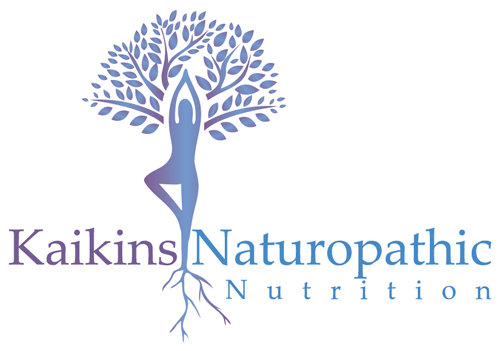Autoimmunity and Mental Wellbeing
Kay Rai
There are over 100 autoimmune conditions listed, but essentially, an autoimmune condition occurs when our immune system mistakes healthy cells as invaders and consequently starts attacking the body’s own tissues, organs and cells. This results in a multitude of symptoms that could affect the heart, brain, nerves, muscles, skin, eyes, lungs, digestive tract, and blood vessels. As we understand autoimmunity, we know if there is the prominence of one autoimmune condition, we are likely to have another. Whilst this can feel quite overwhelming, there is exciting evidence supporting the relationship of food, diet, and environmental and emotional factors all playing a pivotal role in supporting the immune system in autoimmunity.
Food and autoimmunity
Due to the nuances between each autoimmune condition, there is not a “one size that fits all” approach. For instance, what works for someone with type 1 diabetes may vary for someone suffering from vitiligo. Whilst there have been predisposing genetic risk factors involved in autoimmunity, studies have strongly found that the “Western lifestyle”, including environmental factors, make up a significant part of the initiation and propagation of autoimmune disease.
Growing evidence suggests that a typical ‘Western diet’, rich in saturated fat and salt, refined sugar high consumption of poor quality animal protein, especially red meat and dairy, can have a profound impact on both local and systemic immune responses leading to inflammation and chronic disease. This is shown to be due to their pro-inflammatory effects and further influenced by our gut microbiome which is also compromised by the Western diet and lifestyle.
The relationship between food, mood and anxiety is gaining more and more attention and for good reason. All physiological processes are vital when optimising cognitive function, and the bio-chemicals found in food have a profound effect on several complexes in our body.
With any dietary changes and health modifications, it is always advised to speak to a health care provider and/or dietician. It's best to work alongside a practitioner to receive a tailored approach according to your circumstances and lifestyle, but whilst seeking help there are some simple changes you can employ in the meantime.
Why going gluten-free may help
The human diet has dramatically changed over the last 50 years. For generations, humans ate food shortly after harvesting and when it was in season. Meat was very occasionally consumed and much of it was caught in the wild. We have developed new strains of grains, especially in wheat, rice, soy, and corn. The use of chemicals like pesticides, fungicides, and insecticides for crops such as fruits and vegetables has heavily thrusted, modifying our soil state and further compromising its mineral composition. Cows are now injected with hormones, passing them on to dairy products like cheeses and yoghurts.

Antibiotics, heavy metals, such as arsenic, and hormones are used in concentrated animal feeding operations (which include cattle, turkey and chicken), all of which go onto heavily and consistently consumed foods - a slice of white toast or cereal in the morning, a sandwich or takeaway burger for lunch or maybe a microwave meal thickened with wheat amongst high sugar, trans fat and salt content for dinner. Chemical ingredients in our food such as artificial preservatives, colourings and flavourings; artificial sweeteners are used abundantly, especially in soft drinks. We consume more than twice the amount of salt that we should, leading to cardiovascular disorders and contributing to immune reactions and eventually autoimmune disorders.
In autoimmunity, one of the coinciding symptoms is often digestive problems – bloating, IBS-type symptoms, indigestion, stomach acid etc. Gluten is one of the many factors that may contribute to intestinal discomfort and this is associated with many autoimmune diseases. Whilst at present there are many theories for why gluten exacerbates autoimmunity, studies have shown in gluten-free vs. placebo participants when gluten is removed, autoimmune symptoms improved from both a gastrointestinal and systemic perspective too. This could be due to our digestive enzymes no longer having the ability to break down the gluten protein found in grains like wheat and rye due to the change in grain constitution over the years. Or it could be that crops are now grown with fertilisers. Replacing gluten with healthy wholesome sources is important. Simply replacing it with heavily processed high-fat, sugar and salt gluten-free goods will not only be counter-productive but can aggravate symptoms further.
How to Support Your Mental Health
Top 5 Foods to Avoid
Blackened and overcooked meats and fish
Trans-hydrogenated and oxidised fats
High intake of intensively farmed meat and dairy foods
All processed foods, especially those labelled with ingredients you can’t pronounce!
Sugars, including added sugar – fruit juices, alcohol, and wine. Recreational drugs and white starches including white pasta, rice, breads and crackers.
What to do more of...
Manage stress levels - Engage more with social activities that make you feel alive. Do things for self-care and activities which give you time to be away from your stresses. Autoimmunity has been linked as a stress response to the melanocytes.
Remove or limit free radical damage or ROS drivers from your diet and environment - Individuals with autoimmunity have been reported to have compromised antioxidant responses.
Replace the western diet with rich antioxidant foods - Build nutritional status with the help of a registered practitioner to help you identify your triggers, drivers and importantly how to manage your condition.
Be kind to yourself - We live in a world where there is room for everyone to be just as they are. Reach out to people who are in similar situations, which can allow you to support each other. Support networks can be a fun and inviting way to just be yourself which can be freeing. Let that build your confidence to embrace all that you are, as you are.
Remember – our body is whole and interconnected. Autoimmunity is not an isolated condition – as with anything – it is part of a bigger picture.
Kay Rai

Facebook: @kaikinsnutrition
Instagram: @kaikins_nutrition
Email: [email protected]